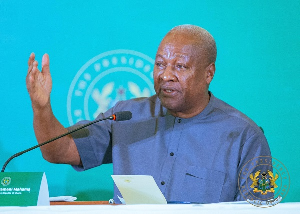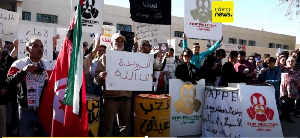Corruption remains the greatest obstacle to the nation’s socio-economic progress, Ghana Anti-Corruption Coalition (GACC), an anti-corruption organisation, has observed.
Mrs Linda Ofori-Kwafo, Executive-Secretary, said there is “a high perception of administrative and bureaucratic corruption in our state institutions and agencies, which needs to be tackled”.
The nation, she said, had since 1960 enacted legislations, policies and anti-corruption organisations, but little had been achieved in curbing the problem in all its forms due to the lack of commitment to implement and enforce those laws.
Mrs Ofori-Kwafo, who was addressing a zonal meeting on corruption at Akyawkrom in the Ejisu-Juaben Municipality of the Ashanti Region, said it is time for the leadership and the citizenry in general tackled the issue head-on for the effective disbursement of state funds and resources.
The meeting formed part of the United States Agency for International Development’s Accountable Democratic Institutions and Systems Strengthening Project.
It was organised under the auspices of GACC with support from Ghana Integrity Initiative and SEND Ghana, a non-governmental organisation.
The project aims to ensure increased advocacy by civil society for legislative change related to accountability.
Increased documentation and exposure of corruption through civil society reporting mechanism are the other objectives.
The Executive-Secretary enumerated various conventions ratified by Ghana to help deal with corruption, saying these should compel the nation to remain faithful in dealing with the menace without any compromises.
“It is our obligation to make corruption non-attractive by enforcing anti-corruption laws to the letter
“Law-enforcement agencies ought to do their work as expected of them without fear or favour to deepen transparent governance”, Mrs Ofori-Kwafo stated
She affirmed the GACC’s resolve to engage civil society organisations (CSOs) at the district and national levels on anti-corruption issues to facilitate sustainable development.
The meeting targeted anti-corruption organisations and agencies, the media and CSOs.
General News of Sunday, 28 June 2015
Source: GNA












